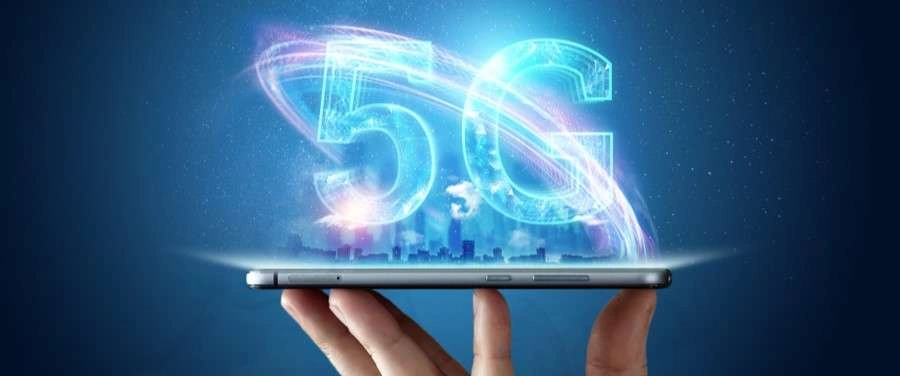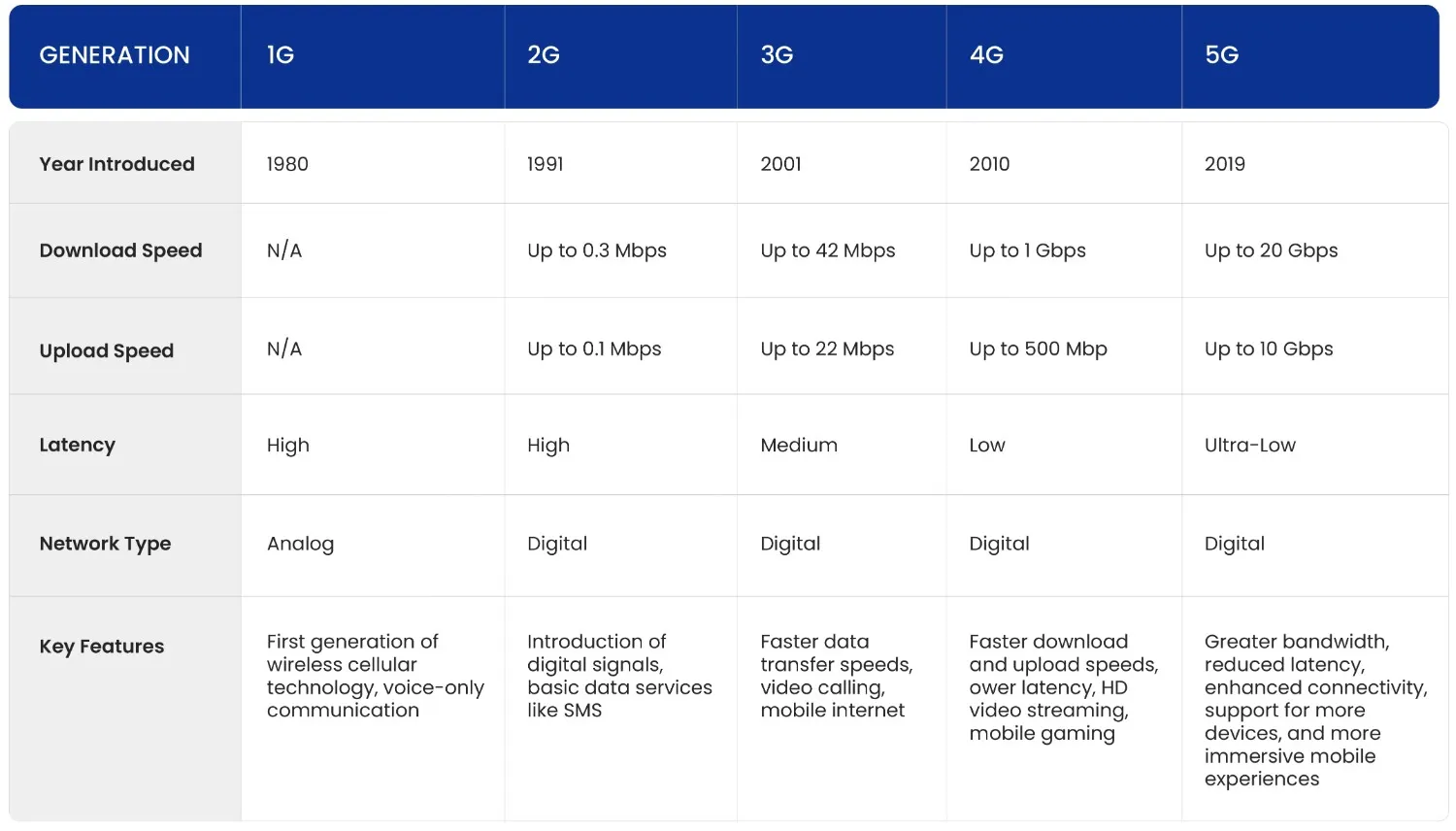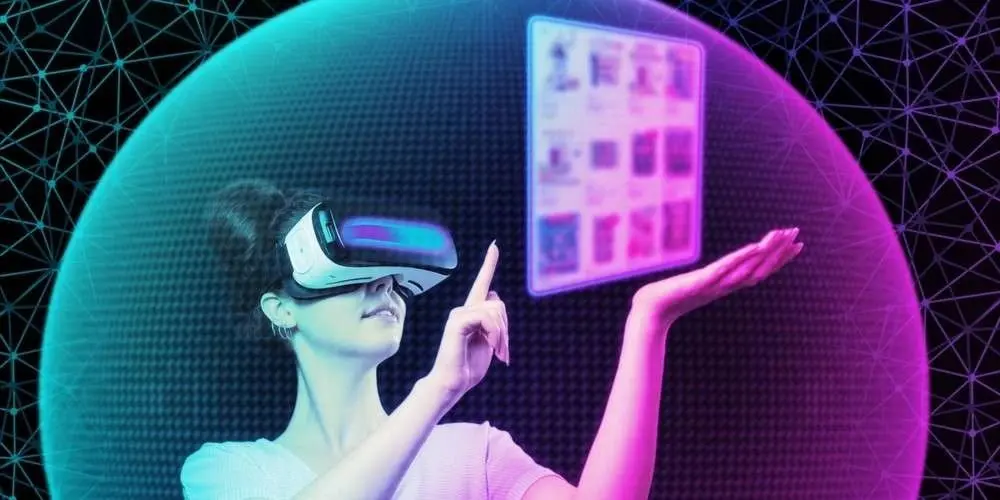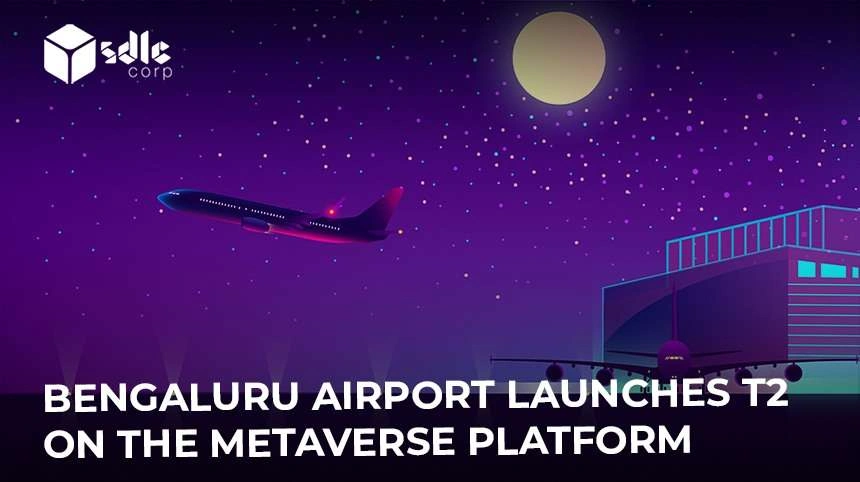Introduction
The newest and most advanced mobile network technology, 5G internet, has completely changed the digital environment. Breaking Barriers with 5G Internet and revolutionising how we connect and interact with technology due to its faster speeds, greater bandwidth, and shorter latency.
It is an improvement over the prior 4G technology and has the potential to revolutionise numerous industries.
With the advent of 5G internet, these barriers are gradually being broken down. In the past, slow internet speeds and bad connectivity have been a significant barrier to progress.
With speeds up to 20 times quicker than 4G, 5G technology enables seamless and immediate access to data and information. This is a significant advancement, especially in industries that depend on quick and dependable internet, like healthcare, education, and finance.
The ability to support multiple devices concurrently without lag or buffering is one of the main advantages of 5G internet.
As a result, companies and households can connect more devices than ever before and use the internet seamlessly. Additionally, the Internet of Things (IoT), a network of physical devices that are linked to the internet and are capable of communicating with one another, is powered by 5G internet.
Smart homes, cities, and transportation systems are all made possible by the IoT, and they all need quick and dependable internet access.
In the fields of telecom, entertainment, and virtual and augmented reality, 5G internet is also breaking down barriers.
5G technology makes it possible to have real-time, immersive experiences that were previously believed to be impossible since it has extremely low latency.
This has opened the door for the creation of innovative and intriguing services and apps like remote surgery, self-driving cars, and smart factories.
5G internet is breaking down barriers and revolutionising the digital world, laying the foundation for a future that is more linked, effective, and sustainable.
5G internet is enabling new applications and services that were previously unimaginable and revolutionising the way we engage with technology thanks to its breakneck speeds, enormous bandwidth, and low latency.
The widespread adoption of 5G technology, which has enormous potential, is expected to transform how we interact, work, and live.
Brief Information About 5G Internet

It is intended to establish quicker and more dependable connections between devices and the internet, making it possible to support emerging technologies like self-driving vehicles, augmented reality, and the Internet of Things (IoT).
Users can obtain data and services almost instantly due to significantly lower latency it offers, making for a more efficient and seamless experience. The capacity of 5G networks is also much higher, allowing for the support of more devices and the handling of increased data flow without becoming overloaded.
The ability of 5G technology to support new use cases and apps that were not possible with earlier generations of wireless networks is one of its main benefits. For instance, 5G can support the growth of smart cities, where sensors and networked devices can track and manage everything from energy use to traffic flow.
The development of autonomous vehicles, which need quick and dependable internet connections to function securely and effectively, can also be assisted by 5G.
Healthcare is another industry where 5G can have a significant impact. High-speed, low-latency connections are necessary for remote healthcare services like telemedicine and remote patient monitoring to send data and video. These connections can be made possible by 5G technology, enabling medical professionals to virtually assess and treat patients from any location in the world.
Evolution of 5G Internet
Since its inception, the development of 5G internet has been a continuous procedure. Here is a quick rundown of the significant turning points in the evolution of 5G:
Research and Development
Around the globe, numerous telecommunications companies and research institutions have been working to develop the underlying technology for 5G since the early 2010s.
Standardization
The International Telecommunication Union (ITU) created IMT-2020 as the first recognised 5G standard in 2015. This paved the way for the adoption of 5G technology in business settings.
Early Deployments
In 2018, a number of nations, including China, South Korea, and the United States, debuted constrained 5G networks. Compared to earlier generations of wireless technology, these networks provided faster speeds and reduced latency.
Enter the 5G Metaverse. Break barriers now!

Network Expansion
In the years that followed, 5G networks quickly grew as many more nations started their own networks. Smartphones, laptops, and Internet of Things (IoT) devices are just a few of the many products that have been created with 5G capabilities.
Technology Advancements
As 5G networks have grown, the underlying technology has undergone many changes, including antenna and modulation scheme upgrades. These developments have made it possible for 5G networks to provide even higher speeds and reduced delay.
Integration with Other Technologies
Artificial intelligence and edge computing, two other cutting-edge technologies, have been combined with 5G technology. Applications that need low latency and high bandwidth, like autonomous cars and smart communities, now have more options thanks to this integration.
Overall, the development of 5G internet has been a quick and continuous process, with numerous technological advances and wide-spread uptake around the globe.
Difference Between 1G, 2G, 3G, 4G, and 5G Internet

Importance of 5G Internet in Metaverse
People can interact, socialise, and engage with digital objects and environments in a highly realistic and immersive manner in the metaverse, an immersive virtual world.
The metaverse will be shaped and its true potential will be unlocked by the development of 5G internet technology.
This essay will examine the significance of 5G internet in the metaverse and how it will transform how we interact with virtual worlds.
Experience the 5G Metaverse. Transform barriers today!

High-Speed and Minimal Delay
5G provides incredibly fast internet speeds and very little latency. For real-time interactions in the metaverse, this means that data can be sent and received almost instantaneously. Users can experience seamless, immersive, and responsive experiences with 5G, which makes the metaverse appear to be a genuinely immersive and responsive environment.
Increased Flexibility and Agility
High-speed internet connectivity on the go is one of the most important benefits of 5G technology. As a result, users who have a mobile device, laptop, or other internet-capable device can join the metaverse from anywhere. With 5G, the metaverse is more approachable and adaptable, enabling users to interact and participate with the virtual world according to their own preferences.
Improvements to Virtual Reality
The metaverse relies heavily on virtual reality (VR) (What are VR AR MR XR and Its Differences), and 5G technology can greatly improve VR encounters. Users can take advantage of high-quality, immersive VR experiences with no lag or delay thanks to ultra-fast speeds and minimal latency. As a result, the metaverse appears to be a genuinely immersive and interactive world because users can move around and engage with virtual objects and environments in real-time.
Increased Sociability and Interaction
The metaverse is a social environment where people can engage with one another, and 5G technology can boost interaction and socialisation there. Users can communicate with virtual objects and environments and have real-time conversations thanks to ultra-fast internet speeds and minimal latency. As a result, the metaverse takes on the characteristics of a real-world social setting where individuals can interact and bond in an extremely immersive setting.
New Opportunities for Creativity
Finally, 5G internet technology offers fresh chances for metaverse invention. Developers can now build novel and inventive applications and experiences that were previously impossible thanks to increased mobility, flexibility, and interactivity. This opens up a vast array of opportunities for brand-new business strategies, sources of income, and social interactions that may completely alter how we engage with one another and conduct business online.
The metaverse will be shaped by 5G internet technology, which has the ability to fully realise its potential. The metaverse becomes more approachable, immersive, and interactive with ultra-fast internet speeds, low latency, and greater mobility and flexibility. This offers fresh chances for invention and socialisation that may completely alter how we communicate and connect with one another in the virtual world.
The Benefits of 5G Internet in Metaverse
Greater and Faster Communication
The metaverse can provide much faster and more dependable communication with 5G internet, enabling connections and real-time interaction between users. As a result, exchanges between people in virtual spaces will be seamless, enhancing the immersiveness and responsiveness of the metaverse. Additionally, the metaverse can manage bigger user bases and more complicated interactions due to 5G internet’s ability to support more devices and connections than earlier internet technology generations.
Superior Virtual Reality
The metaverse relies heavily on virtual reality, and 5G internet can enhance the clarity and accuracy of these digital worlds. Virtual reality encounters can be more immersive and responsive with 5G thanks to its reduced lag and quick load times. The metaverse will feel even more real as a result of users being able to move around and engage with virtual environments more easily and naturally.
Explore our other insights!
An Increase in Interaction and Cooperation
The possibility for user collaboration and social interaction is one of the metaverse’s most intriguing features. These encounters may become even more seamless and organic with 5G internet. Real-time virtual events and meetings, for instance, can be held with people seeing and hearing each other as if they were in the same room. Furthermore, 5G can enable more sophisticated user interactions, like real-time collaboration on virtual projects.
Enhanced Metaverse Access
The need for expensive hardware and a high degree of technological proficiency to access the metaverse is one of its difficulties. However, entry to and participation in the metaverse may become simpler and more accessible for people with the increased availability of 5G internet. As a result, the metaverse might experience a wider variety of users and exchanges, which would make it livelier and more engaging.
New Economic and Business Possibilities
The metaverse may experience new commercial and economic possibilities thanks to 5G internet. For virtual events, product launches, and client encounters, businesses could use the metaverse as a platform. Entrepreneurs could also start new virtual companies in the metaverse, like developing virtual properties or designing virtual clothes. The opportunities for invention and entrepreneurship in the metaverse are essentially endless with 5G internet.
Potential Applications of 5G internet in Metaverse
The Metaverse has a wide range of possible applications and is not constrained to any one sector of the economy. Here are a few possible uses for 5G in various sectors of the Metaverse:

Gaming
The Metaverse’s 5G technology is anticipated to have a significant positive impact on the gaming business. A more immersive and captivating gaming experience with high-quality graphics and minimal latency is possible with 5G. Multiplayer games with more simultaneous participants may also be possible with 5G.
Education
The Metaverse can be a potent educational tool (How will Metaverse Change the Education Sector), giving pupils engaging, immersive experiences. Students and instructors can communicate in real-time using 5G technology, giving the impression that they are in the same room. This makes it possible for students to access educational materials from any location, which is particularly helpful for remote learning.
Health
The Metaverse’s healthcare (Metaverse Healthcare Solutions) system may be significantly impacted by 5G technology. It can facilitate real-time contact between medical professionals and patients, allowing for remote consultations and patient monitoring. Healthcare workers can be trained using the Metaverse, which offers them lifelike and immersive simulations of medical procedures.
Real Estate
The Metaverse can give real estate (How Can Metaverse Revolutionize Real Estate Industry) agencies a fresh platform to advertise homes. With the help of 5G technology, prospective buyers can take virtual walks of homes, offering a more engaging experience than static images and videos. Both buyers and vendors can benefit from this by saving time and resources.
Retail
Customers can shop in a more immersive and engaging manner by using the Metaverse to create virtual shopping experiences (How Metaverse and Crypto Changing the E-Commerce Landscape). With the help of 5G technology, retailers can give customers recommendations and real-time product details, improving the shopping experience.
There are a wide range of possible uses for 5G in the Metaverse, including in the fields of gaming, education, healthcare, real estate, and retail. Real-time communication, more immersive and captivating experiences, and new revenue possibilities are all possible with 5G technology. It is predicted to change the way we interact with the virtual world and open up new business possibilities for a range of industries.
Empower the Metaverse with 5G. Break boundaries now!

Benefits of 5G internet to AR and VR Providers
Virtual reality (VR) and augmented reality (AR) service companies will be significantly impacted by 5G technology. Here are some ways that 5G is influencing AR and Virtual service providers:
Faster Data Transfer
Compared to earlier internet technology generations, 5G technology provides faster data transmission rates. As a result, AR and VR service providers can produce more immersive user encounters with better visuals and fluid gameplay. Real-time streaming of AR and VR material is also made possible by the faster data transfer, which can improve the user experience.
Increased User Engagement
AR and VR service providers using 5G technology can offer their consumers more interactive and engaging experiences. This is due to low latency offered by 5G, which shortens the delay between human input and system response. Additionally, 5G enables more devices to join at once, opening up the possibility of multiplayer AR and VR experiences.
New Revenue Streams
5G technology offers AR and VR service companies new revenue streams. For instance, to provide clients with 5G-enabled AR and VR experiences, AR and VR providers can collaborate with telecom firms. Additionally, premium services like live streaming of virtual events or real-time AR and VR gaming may be provided by AR and VR service providers. These services call for high-speed internet access.
Network Investment
Investment in networks is necessary for AR and VR service companies to fully benefit from 5G technology. This might call for sizable investments in brand-new infrastructure, infrastructure upgrades, and the introduction of cutting-edge technologies like small cells and millimetre wave frequencies. To stay competitive in the 5G era, AR and VR providers must make a significant investment in 5G infrastructure.
Regulatory Considerations
As 5G technology spreads, regulatory issues are becoming more crucial for AR and VR service companies. Governments may need to enact laws to guarantee fair competition and safeguard the security and privacy of users. Providers of augmented reality and virtual reality must abide by these rules while still creating fresh and interesting AR and VR experiences for their customers.
As a result of faster data transfer rates, higher user engagement, new income streams, and regulatory considerations, 5G technology has a significant effect on AR and VR providers. In the future years, AR and VR service providers who can invest in 5G infrastructure and create cutting-edge experiences that make use of 5G technology are likely to be successful.
Unleash 5G in the Metaverse. Break barriers today!

How AR and VR providers will use 5G internet?
AR and VR service providers will be able to design more immersive and interactive experiences for customers because of the increased bandwidth and decreased latency of 5G internet. Here are a few methods that providers of augmented reality and virtual reality can make use of 5G internet:
High-Quality Streaming
Due to 5G networks’ ability to transmit high-quality video content with little lag, AR and VR service providers will find it simpler to offer users high-quality streaming experiences. This will eliminate lag and buffering so users can experience AR and VR material in real-time.
Better Graphics
5G internet allows AR and VR providers to offer more intricate and lifelike graphics. The 5G internet’s increased bandwidth and decreased latency will speed up the rendering of graphics, producing more lifelike and detailed images.
Multiplayer Experiences
5G internet will allow developers of augmented reality and virtual reality to produce more seamless and realistic multiplayer experiences. Users can engage in social interactions or multiplayer games without experiencing any lag or perceptible delays thanks to faster internet speeds and lower latency.
Remote Collaboration
Remote collaboration is made possible by the use of 5G internet by AR and VR service companies. In fields where remote collaboration is becoming more common, such as healthcare, education, and engineering, this can be particularly helpful.
Improved Location-Based Experiences
AR and VR developers can develop more immersive and dynamic location-based experiences with 5G internet. Real-time access to location-specific AR and VR content by users opens up new possibilities for travel, entertainment, and advertising.
In general, 5G internet has the power to completely change how we interact with AR and VR material. We can anticipate even more cutting-edge applications of 5G internet in the worlds of augmented reality and virtual reality as technology advances.
Airtel Enteried Metaverse in India with 5G
The second-largest telco provider in India, Bharti Airtel, is getting ready to establish its 5G network as the country’s metaverse leader. To allow use cases, the telecom giant will take advantage of its partnerships with content providers and over-the-top (OTT) players.
“The metaverse, which needs a lot of data, will be enabled by 5G. Metaverse will require much faster speeds as well as proximity to edge material. According to Randeep Sekhon, chief technology officer at Bharti Airtel, “Telcos will play a significant part.”
He claimed that without “deeper” relationships with telecom operators, the idea of the metaverse will fail.
On March 25, Airtel held a demonstration of its fast 5G network at its Network Experience Center in Manesar, a town close to Gurgaon. During the live presentation, a meta-avatar of the late cricketer Kapil Dev and some breathtaking scenes from the 1983 World Cup game were displayed. At the occasion, Kapil Dev was also present.
A new-age virtual environment called Metaverse was created using cryptocurrency, augmented reality, and virtual reality. With the aid of digital tools and AR headsets, users can play, study, shop, and carry out various activities. The metaverse transformation will have a significant positive impact on the ecosystems of material, entertainment, and gaming.
After social media behemoth Facebook changed its name to Meta last year, the term “metaverse” became popular. In the future, “mankind will move into the Metaverse,” says its chairman Mark Zuckerberg. In order to build an immersive virtual environment, Zuckerberg’s business is devoting a significant amount of cash and resources.
Other digital behemoths besides Meta are also attempting to take advantage of the opportunities in the metaverse. Metaverse was the buzzword at the recently finished Mobile World Congress 2022 in Barcelona.
Visitors could enjoy a 4D metaverse ride of the area through South Korean telecom provider SK Telecom, and HTC users could take a virtual tour of a museum. The top telco provider in Spain, Telefonica, has even hired a “Chief Metaverse officer”.
According to a recent Credit Suisse study, the emergence of the metaverse ecosystem will increase global data usage by 20 times over the course of the next 10 years. According to the study, even at the low level of metaverse usage, the current data consumption will increase 20 times over the following ten years at a CAGR of 37%.
Impact of 5G internet on Telecommunication Companies
The adoption of 5G technology is anticipated to have a big effect on telecom companies in a number of ways, including:
Higher Rivalry
The competition between telecom companies is expected to rise as 5G technology becomes more broadly available. This is due to the fact that 5G provides greater gadget support, faster internet speeds, and lower latency than earlier internet technology generations. Increased competition in the telecom sector is probable as a result of telecom companies that can deliver dependable and quick 5G services having an advantage over those that cannot.
New Sources of Income
With the introduction of 5G technology, telecom firms should discover new sources of income. For instance, they might provide brand-new 5G-reliant IoT services and augmented reality, virtual reality, and other services. In order to provide 5G-enabled services that improve customer experiences, such as immersive gaming or real-time virtual events, telecom companies may also collaborate with other firms.
Community Funding
Telecom firms will have to spend money upgrading their networks in order to offer 5G services. This could entail constructing new infrastructure, improving already-existing infrastructure, and making investments in cutting-edge technologies like millimetre wave bands and small cells. These investments will probably be expensive, but they are essential for telecom firms to stay competitive in the 5G age.
Possibility of Unification
Due to the high expenses of upgrading to 5G, the telecom sector may experience consolidation. Smaller businesses that lack the means to invest in 5G infrastructure may be bought out by larger businesses that do. Due to less competition and possibly higher prices for consumers, this could lead to a smaller number of dominant big telecom companies.
Regulations to Be Considered
Regulatory considerations are expected to become more crucial as 5G technology is adopted more widely. Governments may need to enact laws to guarantee fair competition and safeguard the security and privacy of consumers. These rules must be followed while telecom firms continue to invest in 5G infrastructure and provide customers with competitive services.
The adoption of 5G technology is predicted to have a big effect on the telecom sector, including increased competition, new revenue sources, network investment, the possibility of consolidation, and regulatory considerations. In the upcoming years, telecom businesses that can adapt to these changes and offer dependable and cutting-edge 5G services are likely to flourish.

Benefits of 5G Internet to End Users
For end consumers, 5G internet offers a number of advantages, including:
Faster Download and Upload Speeds
Compared to earlier versions of internet technology, 5G internet offers faster download and upload speeds, enabling users to download and upload files, stream videos, and use real-time apps with little to no buffering or lag.
Improved Connectivity
End consumers who use 5G internet can expect better connectivity and fewer network outages. In densely populated areas where network congestion is common, users can still remain online thanks to this.
Reduced Latency
The delay between sending and getting data is reduced with 5G internet. This indicates that real-time applications, like online gaming or video conferencing, can provide end users with quicker reaction times.
Greater Capacity
Compared to earlier internet technology versions, 5G networks are capable of supporting more connections while maintaining the same level of speed and performance.
Enhanced Mobile Experience
Improved mobile capabilities, such as better GPS accuracy, augmented reality, and virtual reality apps, are available to end users with 5G internet. Users can now enjoy brand-new, cutting-edge mobile encounters thanks to this.
Enhanced Productivity
End users can work more productively and efficiently with faster speeds, better communication, and lower latency. For those who operate remotely or exclusively with mobile devices, this may result in an increase in productivity.
Enhanced Entertainment Experience
A better leisure experience is possible with 5G internet, which could include faster streaming, excellent video, and immersive augmented and virtual reality experiences.
Overall, 5G internet provides end consumers with a number of advantages, such as faster speeds, improved connectivity, lower latency, increased capacity, improved mobile skills, higher productivity, and better entertainment experiences. We can anticipate even more advantages for end consumers as 5G technology develops and spreads.
Future of 5G internet in Metaverse
The Metaverse’s transition to 5G internet is expected to be revolutionary. Numerous new applications and use cases are likely to arise as the technology develops and becomes more widely used. The creation of more immersive and interactive virtual environments is one of the main areas where 5G is likely to have a significant influence. Developers will be able to build virtual spaces that are even more realistic and compelling than those that already exist with high-speed, low-latency connectivity. This will make it possible to participate in previously impractical new forms of entertainment, learning, and social interaction.
Virtual reality (VR) and augmented reality (AR) technology development is another area where 5G is expected to have a significant impact. It will be possible to build VR and AR experiences that are more seamless and immersive than ever before with high-speed, low-latency connectivity. This will open up new possibilities for immersive and interactive experiences to simulate real-world situations and improve learning results in fields like education, training, and healthcare.
In addition to these uses, social connectedness in the Metaverse is probably going to be significantly impacted by 5G internet. It will be possible to design virtual spaces that let people from all over the globe connect and interact with one another in novel and meaningful ways with the help of high-speed, low-latency connectivity. This may have a significant effect on cross-cultural and geographic barriers collaboration and innovation on a global scale, allowing for the solution of complex issues and the emergence of new possibilities.
Overall, the Metaverse’s 5G internet future is promising, with the potential to open up previously impractical new avenues for social interaction, education, and amusement. We can anticipate a variety of new applications and use cases to arise as the technology develops and becomes more widely used, changing how we interact with the virtual world and one another.
Conclusion
FAQs
1. What is the Metaverse, and how is 5G Internet technology transforming it?
The fusion of physical and virtual reality yields the metaverse, a collective virtual shared place. By enabling high-speed, low-latency connectivity, 5G Internet technology is transforming it and allowing for more immersive and interactive virtual worlds with higher levels of detail and interactivity.
2. How will 5G Internet technology break down barriers in the Metaverse?
By enabling increased access to high-speed, low-latency connectivity and allowing more people to connect and interact with the virtual world, 5G technology will remove barriers in the Metaverse. This will assist in bridging differences in geographic location, socioeconomic status, and other aspects that may function as entry barriers.
3. What are some potential applications of 5G in the Metaverse?
More immersive and interactive gaming, virtual reality training simulations for businesses like healthcare and the military, and social platforms that let users communicate and interact with others in virtual spaces are some possible uses of 5G in the Metaverse
4. How will 5G impact the development of the Metaverse in the future?
Future Metaverse growth is likely to be significantly impacted by 5G, opening up new opportunities for social interaction, education, and entertainment. Additionally, it will make the physical and virtual environments more easily accessible and integrated.
5. What are some of the challenges that need to be addressed in order to fully realize the potential of 5G in the Metaverse?
Assuring that 5G networks are accessible to everyone, regardless of location or socioeconomic status, addressing concerns about privacy and security in the virtual world, and developing standards and protocols that enable interoperability between various virtual platforms and technologies are some of the challenges that need to be addressed.



